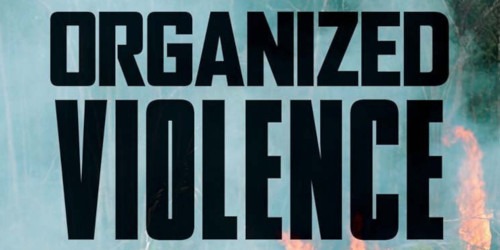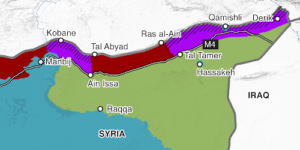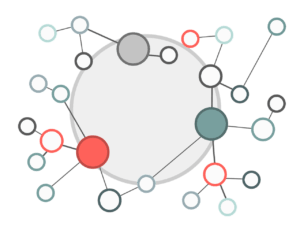Blog

Reflections on Practice Turn in International Relations
Author: Sasikumar S. Sundaram
São Paulo, 25 de Maio de 2018.
In recent times Practice Turn is arguably one of the most heated topics in International Relations theory (IR). Most conferences, roundtable discussions, and workshops have papers concerned with practices or practice theory and I believe it is no less relevant to scholars who aim to steer clear of any definitive engagement with practice theories. In other words, to those concerned and unconcerned, the current debates on “practices” in IR strikes forcefully. It is hopeless to ascertain whether these heated debates are part of simple dissonance before pure modulations or part of shrill and jarring tones marking the end of the beginning. It is therefore only pragmatic to start from the recent debates, take a stance aware of the objections, and “go on” with our research utilizing some of the insights on the practice turn in IR. In this post, I briefly offer some tentative perspectives as a way of pondering on practice turn and its relevance for those concerned with studying foreign and security policies, particularly of Brazil, India, and other “emerging powers.”
In foregrounding the role of practices and what practitioners do in international politics, practice theorists in IR aims to take the everyday life of international politics seriously. Although Adler and Pouliot’s work (Adler and Pouliot 2011) was not the first in this perspective, they certainly established a tendentious ontology of practices with a distinction between behavior, action, and practices. When a person, let us call her Hannah, runs aimlessly in a street, it is a mere behavior; but when Hannah runs after a thief, her running has a meaning component that is specific and located in time and thus it is an action. The distinction between mere behavior and action is that latter rests on an implicit or explicit acknowledgment of intersubjective meaning of the movements of Hannah’s body held both by herself and others: meaning that Hannah aims to catch the thief who stole a purse. However, if Hannah is part of the Polícia Civil do Estado de São Paulo and if she is running after a thief, her action is the result of her training in an Academia de Polícia, is systematically learned from her peers and superiors, is socially recognized, skillfully structured and reiterated over time and space. For Adler and Pouliot, Hannah’s performance as a police officer constitutes practice.
Crucially, Adler and Pouliot layout five dimensions that constitute (international) practices. First, they are competent performances that consist several actions and processes within it and one that unfolds in real time. “Action is specific and located in time; practices are general classes of action, which, although situated in a social context, are not limited to any specific enacting” (2011, 5). Second, practices are patterned and repeated again and again. As they put it, “iteration is a key characteristic of practices – and the condition of possibility for their social existence” (2011, 6). Third, they are socially recognized, appraised, and evaluated by audiences as one that is done correctly or incorrectly. Fourth, practice rests on certain background knowledge that is practical and skillful. “Background knowledge is practical; it is oriented toward action and, as such, it often resembles skill much more than the type of knowledge that can be brandished or represented, such as norms or ideas” (2011, 7). Finally, practices rest on both material and ideational environment. In this way, Adler and Pouliot aim to show that practices are not just explanandum (dependent variables) in the study of international politics but are crucial explanan (independent variables) that do things in and on the world.
Recent debates on practice theory improve upon these five dimensions in many ways. Already in the edited volume, International Practices (2011), insightful critics examine the problems of ontologizing practices and treating actors as automatons of habits (Kratochwil 2011), role of agency in repeated performances (Mattern 2011), and if the current conception of practices could offer a way of theorizing change in international politics (Duvall and Chowdhury 2011). Chris Brown takes issues with practices conceived as mere repeated and habitual performance of actors where the classical virtues of phronesis or practical wisdom in doing things are lost (Brown 2012). Ringmar doubts the bridge-building efforts of the practice turn, which Adler and Pouliot promise as one that could overcome the gap between rationality and practicality, agency and structure, and between stability and change (Ringmar 2014). In a pragmatic follow-up, Bueger and Gadinger offer a useful corrective to excessive Bourdieu tilt in the work of Adler and Pouliot that is well able to account for repetition, reproduction, and hierarchy and less of agency and contingency in practices (Bueger and Gadinger 2015). Hopf recently foregrounds the conscious reflective aspects of agents engaged in practices and offers important scope conditions under which such reflection is most likely to occur (Hopf 2017). It is beyond the scope of this post to present the burgeoning works on practice turn (See, Frost and Lechner 2016; Kessler 2016). However, in utilizing some of these critiques, I present three avenues where an improved understanding of practice turn could help research on foreign and security policies of states.
- Automaton Problem in Foreign Policies of States
An important critique of the current version of the practice turn in IR is the treatment of political actors as automatons of habits. When Adler and Pouliot (2011) discussed the role of iterative performances or the role of background knowledge, they emphasized the substantial importance of practical consciousness as one that is also unreflective. Several authors have since attempted to show how the elimination of conscious reflection robs even practical consciousness of its role in action. As Hopf puts it, “In fact, habit frees up the reflective mind to consciously deliberate about the world” (2017, 3).
This idea has important implications in our understanding of foreign and security policy practices of states, particularly with regard to Brazil, India, or other emerging powers. For example, the overarching routinized interactions of Brazilian political agents on the Responsibility to Protect (R2P) also gave way to important innovation such as Responsibility While Protecting (RwP) and a subsequent rupture to further engagement with the idea. Similarly, India’s routinized (dis)engagement with the United States also paved way for a subsequent negotiation on India-United States Civil Nuclear Deal Agreement in 2005 that not only carved a unique space for India in the Non-Proliferation Regime but also demonstrated how that space arose in-between habits and conscious reflection. A study of the ebbs and flow of such shift in practices in Brazil’s and India’s foreign policy through the overarching lens of how habits set the stage for conscious reflection could show the conditions under which, and processes through which, such potential for change arises through practices.
2. Reflective Opportunities of Political Agents
Another important critique of the current version of the practice turn in IR is the absence of a clear engagement with reflective practices of agents. It is true that background knowledge and repetition paves way for some conception of doing things – this is how things are – rather than other. Yet, in trying to set up practices as one different from both the logic of consequence and logic of appropriateness, the existing version has also sidelined the idea that humans in general and political agents, in particular, reflect within established practices to bring about meaningful change in the order of things. In keeping with the discussion of habits above, Hopf shows that “The more deeply socialized the individual and the more institutionalized the environment, the less likely is reflective agency” (2017, 12).
Yet with the multiple institutionalized environments within which states function in international politics, the study of multiple identities (Emirbayer and Mische 1998, 988) and multiple role takings as a result of reflection on habitus is another area for potential investigation. States such as Brazil, India, Russia, China and South Africa – the so-called BRICS – inhibit multiple institutional environments at the regional and international levels. They are card-carrying states with multiple subject positions: emerging powers, post-colonial states, regional leaders, regional hegemons, spoilers and irresponsible stakeholders. Understanding how political leaders improvise their subject-position in different institutional settings and in this way cultivate liminal spaces for “Others” could show how practices pave way for critical reflection.
3. Goldilocks Problem and Security Practices.
A final reflection on the critique of practice turn is what I consider the Goldilocks problem. At present, Adler and Pouliot conceive of practices as “competent performances.” Kessler rightly asks, “What and whose notion of competence is relevant here? Is competence an ascription by an observer or is competence a self-description by practitioners?” (Kessler 2016, 273). Setting aside the number of problems the current understanding of practices as “competent performances” gives rise to, I focus on what counts as a meaningful difference to bring about a change in these competent performances.
Practice theory and its critiques recognize that “regular stream of disturbances” to practices provoke reflection and thus brings about change in competent performances. As Hopf shows, “if novelty is too extreme and uncertainty is so intense, it is rational to avoid reflective calculations about our too strange surroundings. Furthermore, if there is not much novelty, it is rational to avoid what there is” (2017, 11). The sweet spot is a steady stream of manageable novelty. However, unlike the concern of Goldilocks where one porridge is too hot and another too cold and she settles for the one that is just right, understanding these “just right” meaningful differences to bring about change in practices is difficult in international politics. Further, the sweet spot of disturbance to practices are in the eyes of the practitioners or the audience who evaluates competent performances?
Here, for example, the current version of practice theory has important shortcomings in understanding how political agents conceive of “right” security practices in the light of developments at the regional and international levels. The order of explanation is that these political agents find the “right fit” between new practices to manage the security problem and the taken-for-granted set of existing ideas on these security issues. However, most discursive fit between the novel and the existing is not automatic where – given the sweet spot conscious reflection is automatic and change in practices apparent. Instead, political actors through first articulating a discursive fit find and politicize a sweet spot to bring about changes in practices. Brazil’s change in security practices from a routinized Chapter VI peacekeeping missions to Chapter VII peace enforcement operation in Haiti in 2004 is not the result of a manageable novelty that existed prior to the Lula administration’s articulation and politicization of the need to change the practices. Similarly, India’s recent military modernization and change in security practices vis-à-vis China did not arise because of the antecedently existing steady stream of disturbances that provoked reflection among political agents. Instead, through reflection some Indian political actors interpreted the developments in China and the Asian security architecture as sufficiently novel to articulate a change of security practices. These show that practical judgments and statecraft including prudential reasoning is important in how political agents articulate and “make things up” as she goes along (Ringmar 2014, 14). In simple words, practice turn that ignores the role of political judgment and places too much hope on a stream of steady and manageable disturbances to change practices misdiagnoses human practices.
To conclude, the debates offer important ideas for improving many aspects of our understanding of politics through interrogating practices. The three issues with practice turn that I have discussed in this post aims at improving the rightful concern with practices in international politics but avoiding the obvious pitfalls in neglecting the role of reflection. Detailed empirical works on foreign and security policies of states such as Brazil and India provide important avenues for improving several aspects of theoretically logically but empirical problematic assumptions of the practice turn.
Sasikumar S. Sundaram è pesquisador de pós-doutorado no Núcleo de Pesquisas em Relações Internacionais (NUPRI) e no Departamento de Ciência Política da Universidade de São Paulo.
Reference:
Adler, Emanuel, and Vincent Pouliot. 2011. “International Practices.” International Theory 3 (01): 1–36. https://doi.org/10.1017/S175297191000031X.
Bially-Mattern J (2011) A practice theory of emotion for International Relations. In Adler E and Pouliot V (eds) International Practices. Cambridge: Cambridge University Press.
Brown, Chris. 2012. “The ‘Practice Turn’, Phronesis and Classical Realism: Towards a Phronetic International Political Theory?” Millennium – Journal of International Studies 40 (3): 439–56.
Bueger, Christian, and Frank Gadinger. 2015. “The Play of International Practice.” International Studies Quarterly 59 (3): 449–460.
Duvall RD and Chowdhury A (2011) Practices of theory. In: Adler E and Pouliot V (eds) International Practices. Cambridge: Cambridge University Press, pp. 348–349.
Emirbayer, Mustafa, and Ann Mische. 1998. “What Is Agency?” American Journal of Sociology 103 (4): 962–1023. https://doi.org/10.1086/231294.
Frost, Mervyn, and Silviya Lechner. 2016. “Understanding International Practices from the Internal Point of View.” Journal of International Political Theory 12 (3): 299–319. https://doi.org/10.1177/1755088215596765.
Hopf, Ted. 2017. “Change in International Practices.” European Journal of International Relations, August, 1354066117718041. https://doi.org/10.1177/1354066117718041.
Kessler, Oliver. 2016. “Practices and the Problem of World Society.” Millennium – Journal of International Studies 44 (2): 269–77. https://doi.org/10.1177/0305829815620296.
Kratochwil F (2011) Making sense of ‘international practices.’ In Adler E and Pouliot V (eds) International Practices. Cambridge: Cambridge University Press, pp. 36–60.
Ringmar, Erik. 2014. “The Search for Dialogue as a Hindrance to Understanding: Practices as Inter-Paradigmatic Research Program.” International Theory 6 (1): 1–27.







